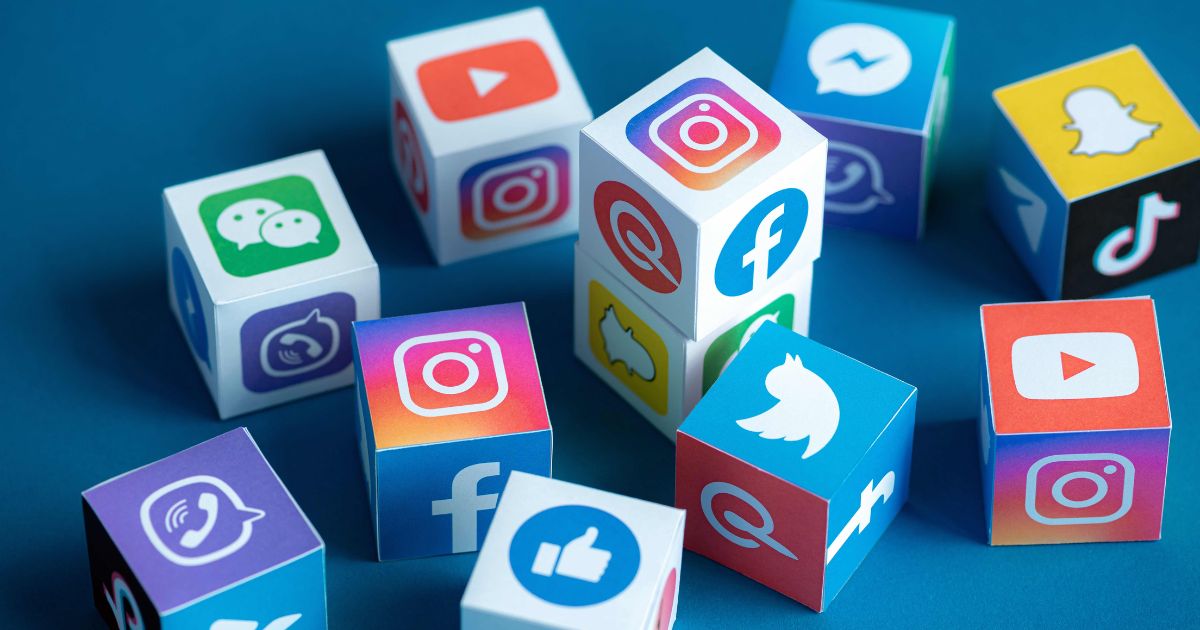The social media app banality of life refers to the monotonous and often unfulfilling cycle of scrolling, posting, and seeking validation on digital platforms. It’s the daily grind of mindlessly checking notifications, refreshing feeds, and comparing ourselves to others online. This phenomenon has become a ubiquitous part of modern existence, shaping how we interact, perceive ourselves, and spend our time.
In a world where likes and shares reign supreme, have you ever felt trapped in an endless loop of digital distractions? The social media app banality of life can leave us feeling empty and disconnected from what truly matters. It’s time to break free from this cycle and rediscover the richness of genuine human connection and personal growth.
This article will guide you through the maze of social media addiction, offering practical strategies to reclaim your time and attention. We’ll explore the negative effects of excessive screen time, share tips for mindful usage, and highlight the importance of real-life interactions. Get ready to transform your relationship with social media and cultivate a more balanced, fulfilling digital life.
Introduction to the Social Media App Banality of Life
The ubiquity of social media in our daily lives is undeniable. From the moment we wake up to the last glance at our phones before bed, these apps have woven themselves into the fabric of our existence. The term “social media app banality” refers to the mundane, repetitive nature of our interactions with these platforms. It’s the endless cycle of checking notifications, scrolling through feeds, and seeking online validation that often leaves us feeling empty and disconnected from real life.
Understanding this phenomenon is crucial for anyone looking to cultivate a healthier relationship with technology. The social media app banality of life isn’t just about wasting time; it’s about the gradual erosion of our ability to engage deeply with the world around us. As we become more accustomed to quick dopamine hits from likes and comments, we risk losing touch with the richness of genuine human connection and personal growth.
The Negative Effects of Social Media Addiction
The consequences of social media addiction extend far beyond mere time-wasting. Research has shown that excessive use of these platforms can have significant impacts on mental health, leading to increased rates of anxiety and depression. The constant exposure to curated highlight reels of others’ lives can fuel feelings of inadequacy and FOMO (Fear of Missing Out), creating a cycle of comparison that’s hard to break.
Productivity often takes a hit as well. A study by RescueTime found that the average person spends 3 hours and 15 minutes on their phone each day, with much of that time dedicated to social media. This digital distraction not only reduces work efficiency but also cuts into time that could be spent on personal development, hobbies, or meaningful relationships.
Let’s Explore some of the most significant impacts
Mental Health Concerns: Studies have shown a strong correlation between heavy social media use and increased rates of anxiety and depression. The constant exposure to curated highlight reels of others’ lives can fuel feelings of inadequacy and FOMO (fear of missing out).
Productivity Drain: How many times have you picked up your phone to check “just one notification” only to emerge from a social media rabbit hole 30 minutes later? This productivity loss adds up, affecting both personal and professional lives.
Comparison Culture: The perfectly filtered and edited world of social media can create unrealistic standards of beauty, success, and happiness. This relentless comparison can erode self-esteem and lead to a distorted sense of reality.
Sleep Disruption: The blue light emitted by our devices interferes with our natural sleep cycles. Late-night scrolling can lead to insomnia and poor sleep quality, which in turn affects our overall health and well-being.
Deterioration of Social Skills: While social media promises connection, it can paradoxically lead to social isolation. The more time we spend interacting through screens, the less adept we become at reading social cues and engaging in face-to-face conversations.
Read More Post: SSIS-950 Uncovered: Must-Know Facts and Details
Strategies to Navigate and Enrich Your Social Media Experience
Despite these challenges, social media isn’t inherently harmful. The key lies in learning to navigate these platforms mindfully. Start by curating your feed to promote positivity and inspiration. Unfollow accounts that make you feel inadequate or unhappy, and seek out content that aligns with your values and interests.
Set clear intentions for your social media use. Ask yourself: What do I want to gain from this platform? Is it to stay connected with friends, learn new skills, or find inspiration? By defining your purpose, you can use social media as a tool for personal growth rather than mindless entertainment.
Leverage social platforms for learning and development. Follow experts in fields you’re interested in, join online courses, or participate in webinars. This approach transforms social media from a time-sink into a valuable resource for self-improvement.
Tips for Breaking the Cycle of Mindless Scrolling
Breaking free from the habit of mindless scrolling requires conscious effort and strategy. Implement app timers and usage trackers to become aware of how much time you’re spending on social media. Many smartphones now have built-in features that allow you to set daily limits for app usage.
Consider embarking on a digital detox. Start small with a day or weekend free from social media, and gradually extend the duration. Use this time to reconnect with offline activities and hobbies. You might be surprised at how refreshing it feels to disconnect.
Practice mindfulness techniques when using social media. Before opening an app, take a deep breath and ask yourself if this is how you want to spend your time right now. This simple pause can help break the automatic habit of reaching for your phone.
Replace scroll time with meaningful activities. Keep a list of things you’ve been wanting to do read a book, call a friend, try a new recipe and refer to it when you feel the urge to mindlessly check social media.
Reclaiming Your Time and Attention
Reclaiming your time and attention from the clutches of social media is about more than just reducing usage; it’s about redirecting your focus to what truly matters. Develop techniques to improve concentration, such as the Pomodoro Technique, which involves working in focused 25-minute intervals followed by short breaks.
Create a schedule that prioritizes real-world activities. Block out time for exercise, hobbies, and face-to-face interactions with friends and family. By filling your day with enriching experiences, you’ll naturally have less time and desire for aimless scrolling.
The art of being present is a powerful antidote to the distraction of social media. Practice mindfulness in your daily life whether it’s savoring a meal without your phone at the table or taking a walk and really noticing your surroundings. These small acts of presence can significantly enhance your quality of life.
The Importance of Engaging in Real-Life Interactions

While social media can facilitate connections, it’s no substitute for the depth and richness of real-life interactions. Face to face communication offers psychological benefits that digital interactions can’t replicate. It promotes empathy, strengthens emotional bonds, and provides the kind of nuanced social cues that are lost in text-based exchanges.
Make a conscious effort to balance your online and offline social circles. Set up regular meetups with friends, join local clubs or groups related to your interests, or volunteer in your community. These real-world connections provide a sense of belonging and fulfillment that likes and comments simply can’t match.
Create Rather Than Consume
Shift your social media usage from passive consumption to active creation. Use these platforms as a canvas for self-expression and creativity. Share your artwork, write thoughtful posts, or create videos about topics you’re passionate about. This approach not only makes your time online more fulfilling but also contributes positively to your digital community.
Reflect on Your Usage
Regular reflection is key to maintaining a healthy relationship with social media. Keep a journal about your online habits and how they make you feel. Are there certain apps or types of content that leave you feeling drained or unhappy? Identifying these patterns can help you make more conscious choices about your digital diet.
Connect with Purpose
Use social media as a tool to strengthen existing relationships and forge new ones based on shared interests and values. Join online communities that align with your passions, and use these platforms for meaningful networking and professional growth. By approaching social media with intention, you can transform it from a source of distraction to a valuable resource for connection and learning.
Finding Balance and Purpose in a Digitally Connected World
Achieving balance in our digital lives is an ongoing process that requires self-reflection and intentional action. Start by defining your personal values and aligning your online activities with these principles. Ask yourself: Does my social media use reflect who I am and who I want to be?
Consider embracing the concept of “digital minimalism,” as coined by author Cal Newport. This philosophy involves being more selective about the technologies you use and how you use them. It’s not about rejecting digital tools entirely, but rather about using them in a way that supports your goals and values.
Explore tools and apps designed to promote mindful tech use. Apps like Forest or Freedom can help you stay focused by blocking distracting websites and apps during designated work periods. Remember, technology should serve you, not the other way around.
Conclusion
Navigating the social media app banality of life is a challenge we all face in the digital age. By implementing the strategies outlined in this guidefrom mindful usage and digital detoxes to prioritizing real-world connections and creative expression you can transform your relationship with social media from one of passive consumption to active, purposeful engagement.

Jordan Lee, a tech enthusiast and the founder of Innovate Tech Solutions, brings a wealth of knowledge to the tech industry. With a strong background in software development and digital marketing, Jordan crafts solutions that drive innovation. His passion for technology fuels his commitment to helping businesses thrive in the digital landscape.
